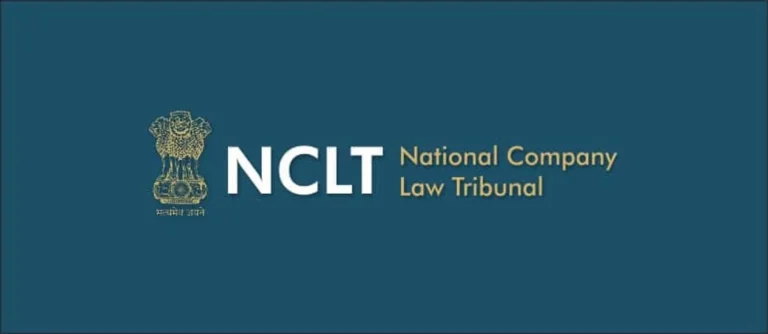
Strategies to Secure a Military Law Research Associate Position with the Indian Army’s Litigation Wing in 2025
Introduction
In order to be successful in obtaining a post as a Military Law Research Associate with the Litigation Wing of the Indian Army in the year 2025, one must have a good comprehension of both legal concepts and military norms, as well as focused preparation and devotion.
Assisting military attorneys in the preparation of cases, performing legal research on service-related issues, and providing assistance in judicial procedures are all responsibilities that fall under this function.
Each member of the Indian Army’s litigation squad is held to very high levels of professionalism and skill. In order to be considered for the position, prospective applicants need to be ready to show their legal expertise, acquaintance with service law, and dedication to the principles that the armed services uphold. It is possible to improve one’s chances of being successful by adopting a strategic strategy, starting far before the application window opens.
For any queries or to publish an article or post or advertisement on our platform, do call at +91 6377460764 or email us at contact@legalmaestros.com.
Understanding the Role
Every step of the legal dispute resolution process is affected by the contributions of a Research Associate working in the Litigation Wing. In order to be successful in this role, you will need to conduct an in-depth analysis of the military rules, case precedents, and constitutional provisions that pertain to service concerns.
Associates assist in the preparation of arguments for courts-martial or civilian judicial forums, as well as the drafting of legal opinions and the compilation of case summaries. In addition, they have the responsibility of communicating with commanding commanders and paralegal staff in order to collect information, check papers, and ensure that all procedural criteria are met.
It is essential to have a solid understanding of these day-to-day obligations in order to better adapt one’s training. One of the most important differentiating factors will be familiarity with both the procedures of military justice and the more general legal processes of India.
For any queries or to publish an article or post or advertisement on our platform, do call at +91 6377460764 or email us at contact@legalmaestros.com.
For More Updates & Regular Notes Join Our Whats App Group (https://chat.whatsapp.com/DkucckgAEJbCtXwXr2yIt0) and Telegram Group ( https://t.me/legalmaestroeducators )
Educational Qualifications and Academic Excellence
To begin working for this position, you must first have a solid academic foundation in the field of law. A Bachelor of Laws (LLB) degree from an institution of higher education that is recognized is required.
The candidate’s preparedness for specialized legal employment may be inferred from the fact that they graduated with good grades, particularly in topics such as Constitutional Law, Administrative Law, and Criminal Law.
For any queries or to publish an article or post or advertisement on our platform, do call at +91 6377460764 or email us at contact@legalmaestros.com.
The demonstration of analytical abilities will be further highlighted by outstanding performance in moot court contests and research projects. There are certain individuals who choose to supplement their Bachelor of Laws degree with a Master of Laws (LLM) degree that focuses on administrative or military law.
Academic brilliance not only satisfies the basic qualifying requirements, but it also helps students develop the self-assurance and discipline that are necessary for the litigation wing.
Developing Specialized Knowledge in Military Law
Legislation such as The Army Act, rules such as the Army Rules, and international agreements on armed conflict are all examples of military law, which is separate from civilian law.
For any queries or to publish an article or post or advertisement on our platform, do call at +91 6377460764 or email us at contact@legalmaestros.com.
It is important for potential employees to familiarize themselves with these documents as soon as possible. The acquisition of knowledge and credibility may be enhanced by engaging in activities such as reading comments on the Army Act, attending seminars on military jurisprudence, and subscribing to professional magazines.
It is possible to get organized learning via the use of online courses or certificate programs on defense law that are provided by reputable institutions. It is possible to establish a candidate’s genuine interest and readiness by demonstrating that they have mastered military-specific legislation and are aware of historic service law rulings.
Gaining Practical Experience
Real-world experience with the procedures involved in litigation helps to boost theoretical learning. It is possible to get useful experience by participating in internships with legal firms that handle service concerns, shadowing attorneys in courts-martial, or aiding with public interest litigation on topic pertaining to defense.
For any queries or to publish an article or post or advertisement on our platform, do call at +91 6377460764 or email us at contact@legalmaestros.com.
In addition, gaining relevant experience may be accomplished by volunteering in legal aid clinics that serve veterans or families of service members. The applicants should be sure to seek jobs that include legal research, preparing pleadings, and attending hearings when they are participating in internships.
Through this hands-on experience, participants are able to improve their drafting abilities and courtroom manners, all while developing professional contacts. Working under real military attorneys also gives an opportunity to get an understanding of the distinctive culture and requirements of the armed services throughout the litigation process.
Building a Strong Research Portfolio
All applications are differentiated from one another by the presence of a compelling research portfolio. Candidates have to make it a goal to write essays or case notes on current topics pertaining to military justice, veterans’ rights, or the convergence of human rights and security legislation.
For any queries or to publish an article or post or advertisement on our platform, do call at +91 6377460764 or email us at contact@legalmaestros.com.
Written work that is submitted to legal reviews, defense journals, or other renowned online venues demonstrates the author’s writing abilities and subject-matter competence. Increasing one’s reputation further may be accomplished by presenting papers at conferences or contributing to edited volumes on law pertaining to defense.
Portfolios need to demonstrate rigorous methodology, clear arguments, and relevance to actual military litigation in the real world. Selectors are given the impression that the applicant is capable of completing difficult research assignments that are needed by the Litigation Wing based on this body of work.
Networking and Mentorship
The development of ties within the legal and defense community may result in the provision of direction and the opening of paths. Candidates have the opportunity to meet commanders and seasoned attorneys by participating in opportunities such as attending military law conferences, seminars hosted by bar groups, and workshops held at defense universities.
For any queries or to publish an article or post or advertisement on our platform, do call at +91 6377460764 or email us at contact@legalmaestros.com.
Seeking mentoring from retired judge advocates or legal scholars provides not just professional guidance but also the possibility of referrals. Demonstrating dedication may be accomplished by actively participating in professional societies that are associated with administrative or military law.
The process of networking need to be sincere and mutually beneficial, with candidates giving help on research projects or event planning. The application process and the expectations of the Litigation Wing may be better understood with the use of such relationships, which can produce significant information.
Navigating the Application Process
The official recruiting webpage for the Indian Army provides information on qualifying requirements, application deadlines, and selection phases. The candidates are required to closely monitor alerts, produce comprehensive paperwork, and conform to the forms that have been set.
For any queries or to publish an article or post or advertisement on our platform, do call at +91 6377460764 or email us at contact@legalmaestros.com.
Documents that are often required include academic transcripts, evidence that the applicant is enrolled in the bar program, letters of reference, and a curriculum vitae that is well constructed and highlights relevant experience.
A succinct cover letter that is customized to the goal of the Litigation Wing might be an effective way to demonstrate one’s qualification for the position. Paying close attention to the details is very necessary; even little mistakes on forms or the absence of certifications might disqualify a candidate who is otherwise strong. In order to guarantee that all credentials are arranged well before the deadline for submission, early planning is essential.
Mastering the Interview
The individuals who have been shortlisted are subjected to rigorous interviews that are aimed to evaluate their legal knowledge, analytical thinking, and personal characteristics. As part of the preparation process, it is important to review important case laws, military legislation, and recent decisions that have an impact on service people.
For any queries or to publish an article or post or advertisement on our platform, do call at +91 6377460764 or email us at contact@legalmaestros.com.
It is possible to polish replies to scenario-based questions by participating in mock interviews with peers or mentors. In order to demonstrate their comprehension of the function that the Litigation Wing plays in maintaining order and justice within the Army, candidates should express their thinking.
When you demonstrate that you have a clear way of thinking, that you appreciate the military culture, and that you have a collaborative mindset, the selection panel will take notice. Dressing in a professional manner and appearing on time are two more ways to demonstrate the discipline that is highly valued within the military services.
Continuous Professional Development
The ability to continue learning is essential to success, even after the employment has been secured. It is of the utmost importance to be current on the ever-changing legislation governing the military, landmark decisions, and trends in international law.
For any queries or to publish an article or post or advertisement on our platform, do call at +91 6377460764 or email us at contact@legalmaestros.com.
The Litigation Wing places a high importance on associates who take the initiative to continue their professional development by participating in advanced courses, seminars, and joint research.
Opportunities to enhance one’s viewpoint may be gained by participation in multidisciplinary studies on military administration or security policy. It is possible to improve one’s contribution to the team by being proficient in the processes of producing briefs, negotiating settlements, and presenting arguments. In the end, constant professional development not only improves individual careers but also increases the ability of the Litigation Wing to provide legal services that are both fair and effective.
Conclusion
A well-rounded plan that combines academic achievement, specialized knowledge, practical experience, and professional networking is required in order to get a post as a Military Law Research Associate in the Litigation Wing of the Indian Army in the year 2025.
For any queries or to publish an article or post or advertisement on our platform, do call at +91 6377460764 or email us at contact@legalmaestros.com.
It is necessary for candidates to exhibit a comprehensive grasp of military law, good research ability, and the discipline necessary to prosper in an atmosphere that is regimented. Prospective associates will position themselves as excellent contributors to the Army’s legal mission if they prepare themselves rigorously for each level, from the creation of a research portfolio to the mastery of formal interviews.
In order to prepare the road for a satisfying career in the service of justice and national security, it is necessary to demonstrate a real respect for military ideals and a commitment to always learning new things.




![Research Assistantship @ Sahibnoor Singh Sindhu, [Remote; Stipend of Rs. 7.5k; Dec 2025 & Jan 2026]: Apply by Nov 14, 2025!](https://legalmaestros.com/wp-content/uploads/2025/11/Gemini_Generated_Image_s0k4u6s0k4u6s0k4-768x707.png)
![Karanjawala & Co Hiring Freshers for Legal Counsel [Immediate Joining; Full Time Position in Delhi]: Apply Now!](https://legalmaestros.com/wp-content/uploads/2025/11/Gemini_Generated_Image_52f8mg52f8mg52f8-768x711.png)
![Part-Time Legal Associate / Legal Intern @ Juris at Work [Remote]: Apply Now!](https://legalmaestros.com/wp-content/uploads/2025/11/ChatGPT-Image-Nov-12-2025-08_08_41-PM-768x768.png)
![JOB POST: Legal Content Manager at Lawctopus [3-7 Years PQE; Salary Upto Rs. 70k; Remote]: Rolling Applications!](https://legalmaestros.com/wp-content/uploads/2025/11/ChatGPT-Image-Nov-12-2025-08_01_56-PM-768x768.png)